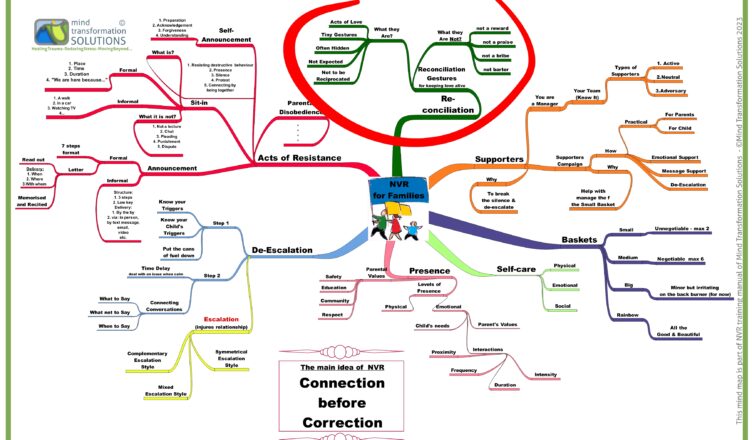Reconciliation gestures – a few ideas.
Reconciliation gestures are acts of kindness made towards a person regardless of their behaviour.
Those acts of unconditional love are to be done in the midst of the child’s worst behaviour: when your child rejects you, provokes you, disrespects you, withdraws from you, emotionally blackmails you, stresses you out, worries you beyond word, etc. and so on.
How on earth are you supposed to make a gesture towards a child when he is at his worst…?
Good question. Before we move on to practical ideas a brief definition:
- The gestures are not connected with the children’s behaviour but to our unconditional love for them.
- The gestures are not rewards, therefore, can be done at any time, regardless the child’s behaviour! The child was excluded from school – you bake her favourite cake.
- They are not bribes either – I’ll give you a new phone but in exchange, you go to school. Or one may be thinking: I hope that if I give in and buy her this coat she will be more respectful towards me.
Unfortunately, we are deeply conditioned to believe that the only way of influencing somebody is via carrot and/or stick strategy.
Please do not misunderstand me, I do see a place for praises and rewards as well as reprimands and punishments.
However, often we get to the point where these stopped working. What’s then?
The answer is a reconciliation gesture.
A few pointers:
- Do not expect that you will feel like doing those gestures. Let it not stop you from making them. Open your NVR booklet at the page which says Reconciliation Gestures. Choose a few and do them. Please never, ever expect any gratitude! You do it for yourself after all (as a reminder of your own love for your child).
NVR booklets for parents can be downloaded directly from NHS Oxleas website HERE and HERE
For booklets and other media on the topic of NVR go to NHS Oxleas website
- If it is easy for you to do a reconciliation gesture it means that you are not really doing a reconciliation gesture. A reconciliation gesture is difficult to do because you are quite hurt or disheartened by the child’s behaviour and attitude. Be prepared for it and do the gesture anyway.
- When you do a reconciliation gesture you are reminding yourself that you love this child you are not giving a present or a reward!
Therefore, a gesture could be tiny, minute, micro like naming a positive quality of your child in your mind: he has a wicked sense of humour; she is good at standing up for others.
If the gesture is an object it needs to be free or very cheap. Nothing flashy.
If you cannot remember any positive quality go for fond memories like when she was a sweet toddler, or remember your boy happily laughing when you played together in a park, etc. At really difficult times anything more than this might be too difficult for you to do. Thinking well and kindly of your child is a beautiful reconciliation gesture and a great beginning of a strong relationship, isn’t it?
Two examples:
- One of NVR parent facilitators keeps a privet diary where she notes specific descriptions of what her child has done well (even the tiniest positive actions) over a week. There is a ritual to it: mum sits on Friday evening and writes. Family members observe her do it on weekly basis. The young person has a condition which impacts her behaviour so there are weeks when there would be very few entries. However, there always be something, mum sees to it.
The point is that this diary may sometimes be left unattended…Who do you think is most likely to seize an opportunity and have a peek into mum’s notes? Yes, you guessed correctly . For mum, the diary is a way of keep remembering the lovely side of her child. For the child, it seems to be an enjoyable way of being reassured of the unconditional love.
Writing the diary does not stop this mum from disciplining her daughter when she needs it.
- Another parent has a habit of leaving post-it notes on her son’s mirror with remarks like “I appreciate your help with your brother two days ago”; “well done for staying calm yesterday morning in school when…”; “you look so handsome in your new haircut”.
It started when they had a lot of difficulties in their relationship.
The messages were delayed because she often needed time to de-escalate her anger at her boy. It would have been impossible for her to address him directly. She needed to remind herself of the love for her child first. Then she was able to leave such appreciative messages in the midst of really challenging times. Without those reconciliation gestures, there might have been no communication to speak of – only arguments and painful silences. The mirror messages have helped to turn their relationship around. And of course, the gestures did not stop the mum from working on the small basket behaviours.
If you are interested in:
- NVR training or
- you are already NVR facilitator, supporter, parent and you seek consultation or supervision
contact us via email ![]()
For general information about NVR click here: “NVR – a way of rebuilding and strengthening relationships”





